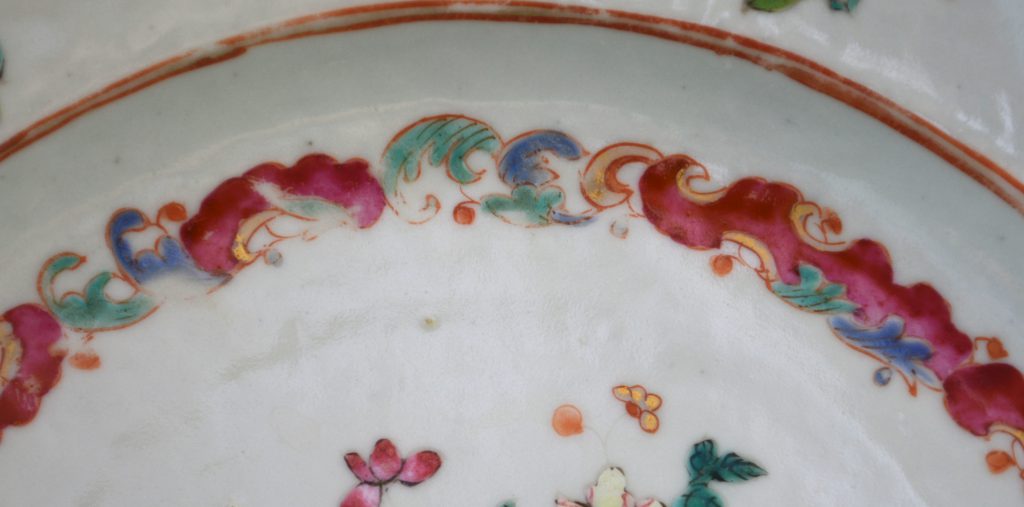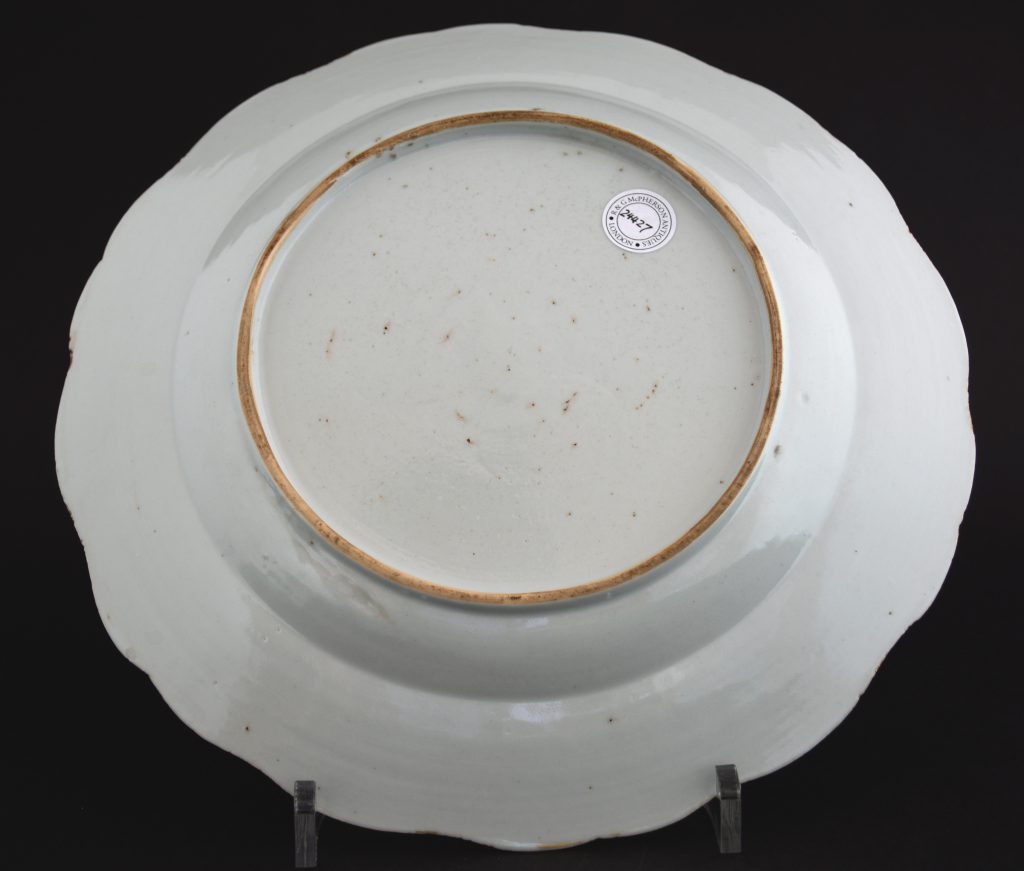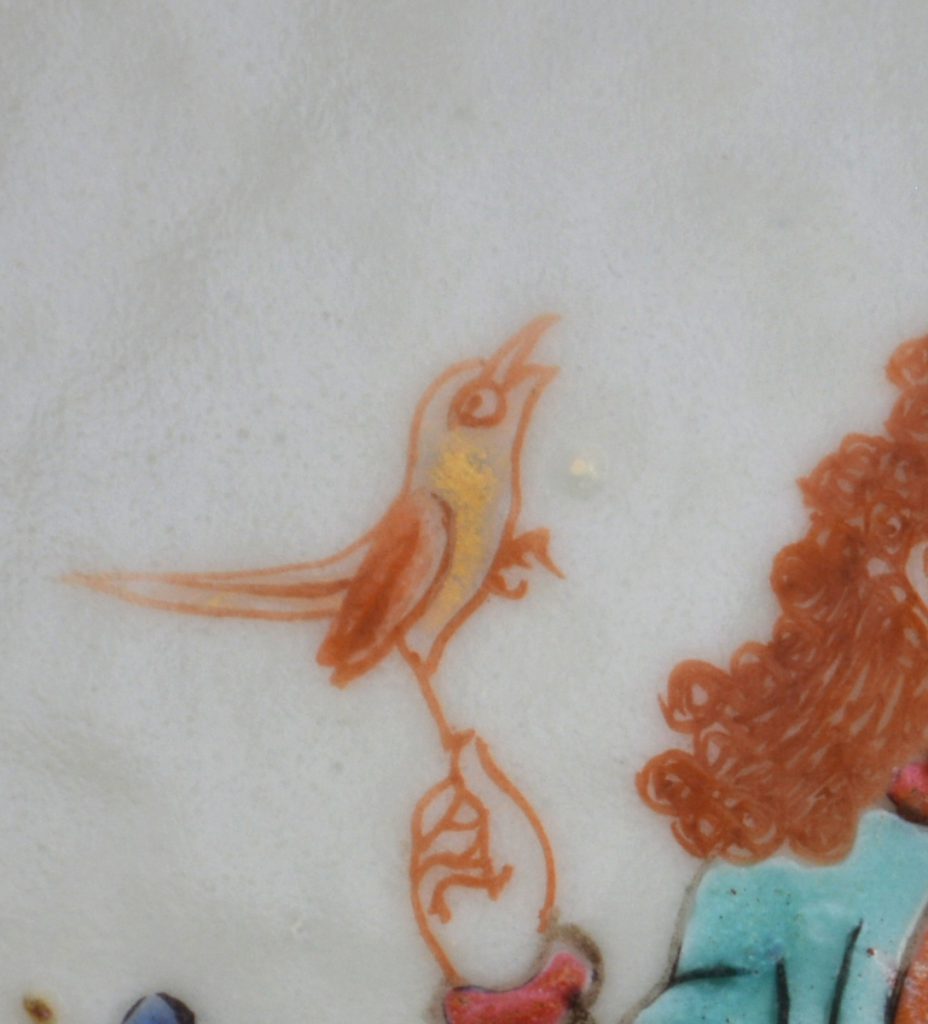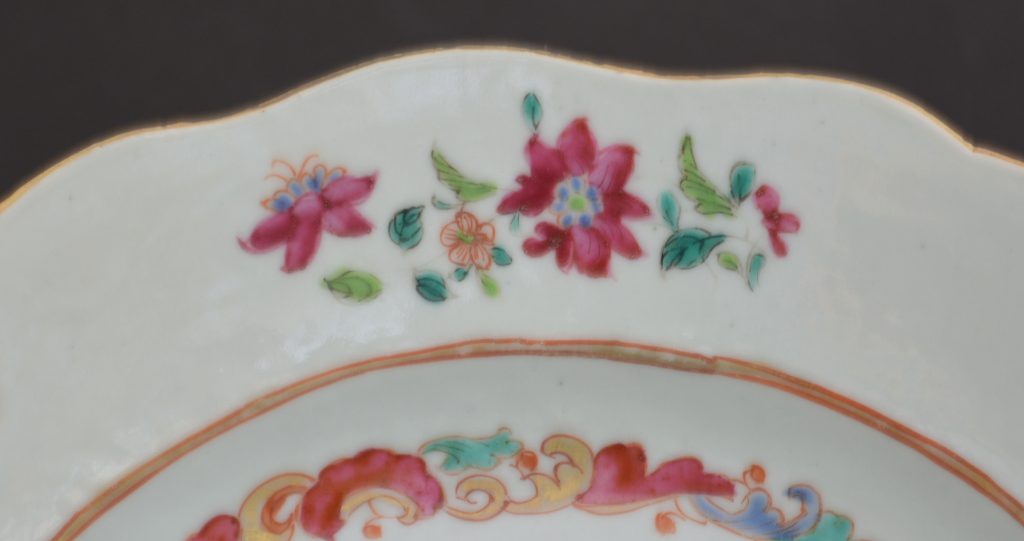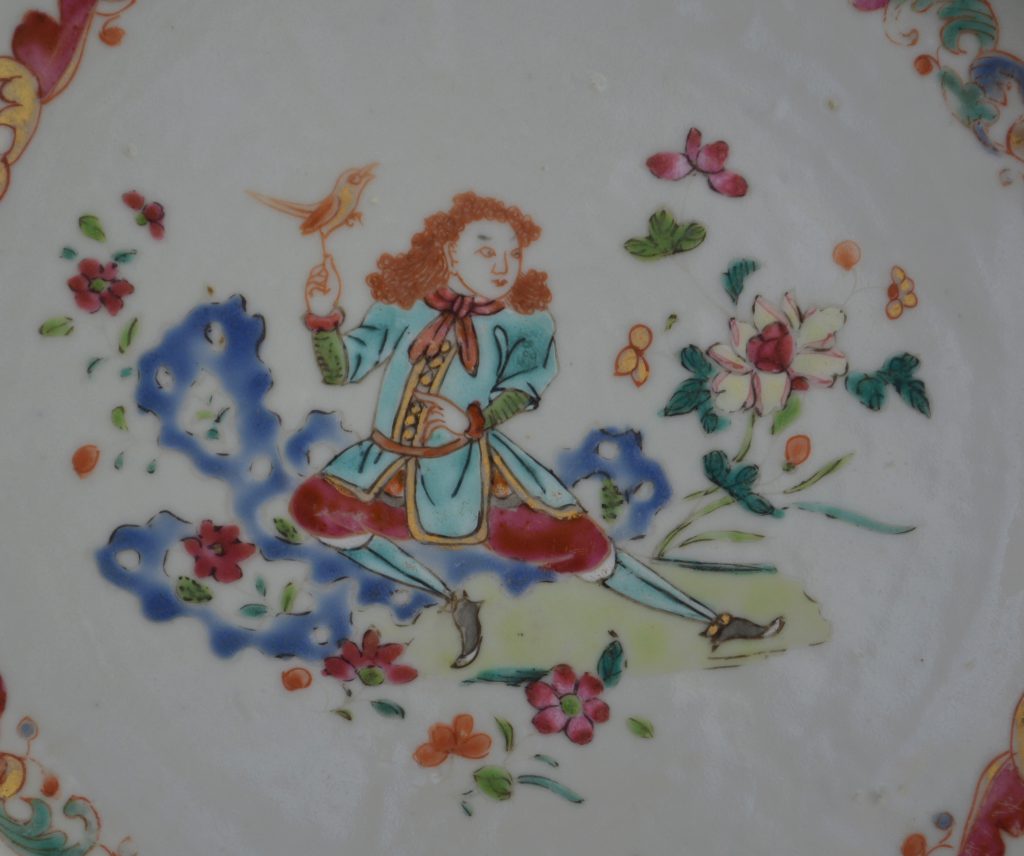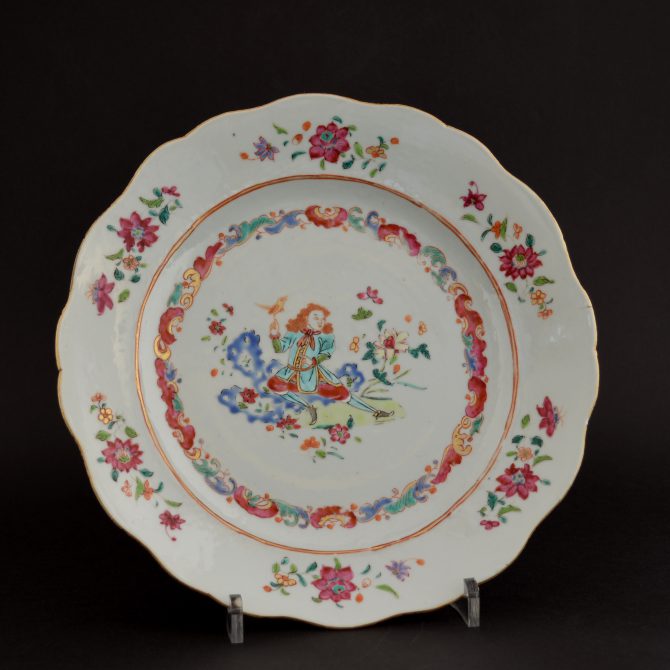
QIANLONG 1736 – 1795 Chinese Export Porcelain
An 18th Century European Subject Chinese Export Porcelain Plate, Qianlong Period c.1745-1755. The Central Scene of this Famille Rose Plate Shows a Well Dressed European Man with a Bird Perched on His Finger. He is Seated on a Scholars Rock Among Flowers.
SOLD
- Condition
- In very good condition. There is a tiny glaze flake to the back c.3 x 2 mm, to the front is a small firing crack which has a tiny extension to the glaze.
- Size
- Diameter : 23.5 cm (9 1/4 inches)
- Provenance
- N/A
- Stock number
- 24427
- References
- For a Chinese export porcelain plate of this design dated to c.1735 see : La Porcelaine Des Compagnies Des Indes A Decor Occidental (Francois et Nicole Hervouet, Yves Bruneau. Flammarion, 1986. ISBN 2-08-010990-1) page 90, item 4.29. A plate with a very similar design but with the man playing a flute also dated to c.1735 is illustrated in : China for the West, Chinese Porcelain & other Decorative Arts for Export illustrated from the Mottahedeh Collection Vol. II ( David S. Howard and John Ayers, Sotheby`s,1978. ISBN 0-85667-035-9) Page 359, Plate 348. A Chinese export porcelain plate with the version of this design design mentioned above is illustrated in : La Porcelaine Des Compagnies Des Indes A Decor Occidental (Francois et Nicole Hervouet, Yves Bruneau. Flammarion, 1986. ISBN 2-08-010990-1) page 186, item 8.10.
Information
Scholar`s Rocks :
Chinese scholars` rocks, also known as scholar stones or viewing stones, are small shaped or naturally-occurring rocks appreciated by Chinese scholars from the Song dynasty onwards, and quite frequently found in traditional Chinese gardens. The most highly regarded stones are lingbi rocks, from Lingbi County of Anhui Province, with the finest examples dating from the Ming dynasty and Song dynasty. Taihu rocks are also prized, and are commonly used as garden stones. They influenced the development of Korean stone art and Japanese suiseki aesthetics and styles and were an important part of Confucian art. Natural stone and rock formations, with no artificial carvings, are preferred. Rocks would sometimes be carved and then thrown back into a lake so that any markings could be washed away. Scholars rocks can be any colour, and contrasting colours are not uncommon. Sometimes they feature painted patterns, which can be of any subject, either natural or abstract. The size of the stone can also be quite varied: scholars rocks can weigh either hundreds of pounds or less that one pound. Subtlety of colour, shape, and markings is also desired, as is beauty of texture and shape. Scholars stones are usually reminiscent of someone or something, or it may convey a spiritual nature that moves viewers in some way. They are usually set upon a stable surface, such as a rosewood pedestal that has been carved specifically for the stone.
